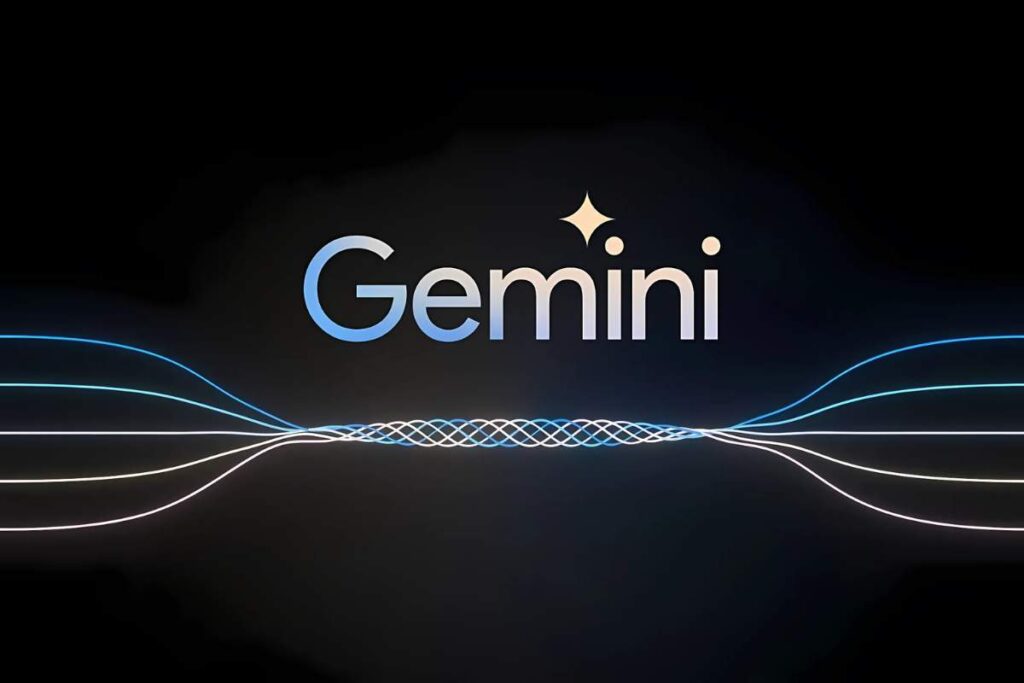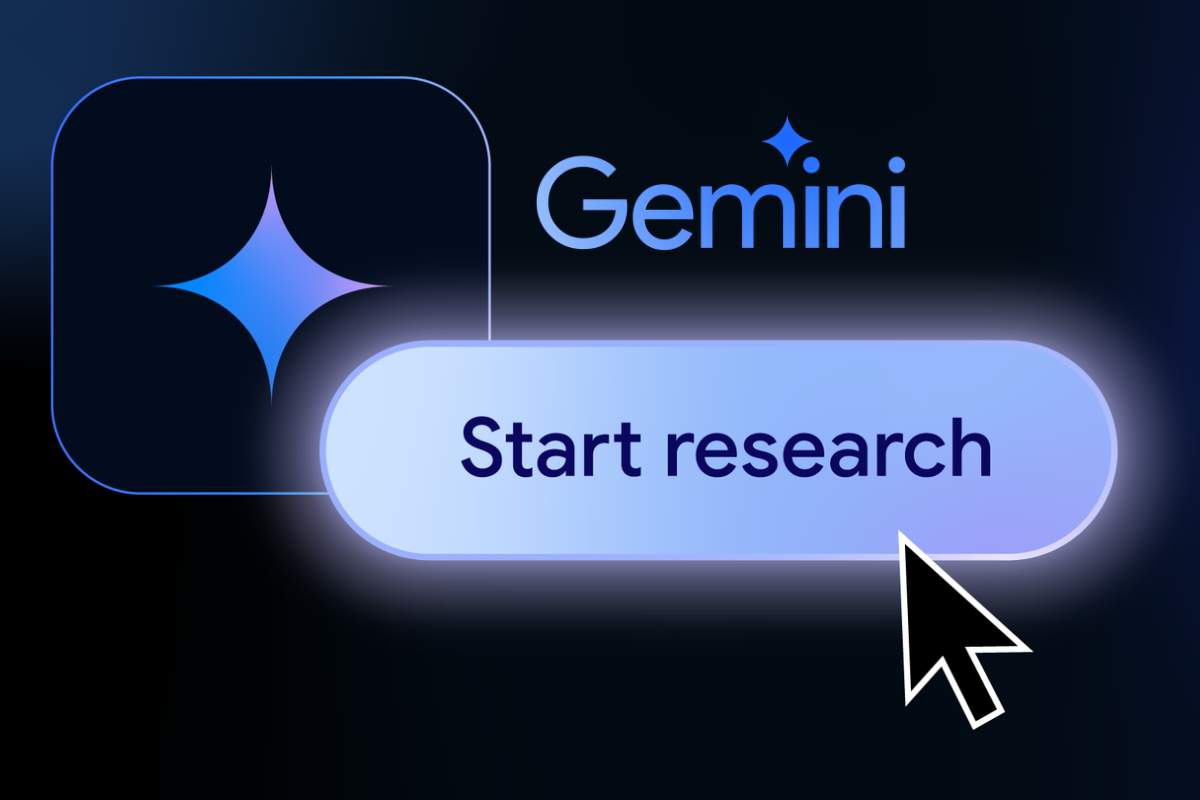The Problem with Traditional Research
Consider spending hours scrolling through a never-ending list of search results, cross-checking multiple articles, and still not being sure if important information has been left out. This is symptomatic of the flaws of traditional online research. Introducing Google Gemini Deep Research, a revolutionary AI solution specifically designed to revolutionize how we obtain and process factual information. Unlike traditional AI chatbots, Deep Research is an individual research assistant that leverages sophisticated reasoning, autonomous web browsing, and multi-step planning to provide in-depth reports in minutes. In this blog, we will delve into its operation, discuss its significance, and explain how its “agentic” design distinguishes it from traditional AI, such as Gemini.
What is Google Gemini Deep Research?
Google Gemini Deep Research is an AI-powered feature that comes with Gemini and is meant to automatically do advanced research work. It can be viewed as a virtual colleague that mimics human research steps: planning, searching, analyzing, and synthesizing information, but at lightning speed.
Key Characteristics:
- Multi-Page Reports: Generates long, citation-based reports on topics ranging from market trends to academic concepts.
- Audio Overviews convert reports into podcast-style summaries, thus making on-the-go learning possible.
- Workspace Integration: Results are exported to Google Docs or Sheets directly, enabling easy collaboration.
- 1M Token Context Window: Retains all information discussed during a session, thus allowing for follow-up questions and iterative refinement.
Whereas Simple Gemini gives you answers in the moment, Deep Research goes further. It doesn’t just respond, it moves on your behalf, scanning hundreds of sources, assessing credibility, and filling in the dots you can’t.
Normal AI Model vs Gemini Deep Research: What’s the Difference?
| Feature | Other Models | Deep Research |
|---|---|---|
| Primary Function | Real-time Q&A, drafting, summaries | In-depth research & analysis |
| Output | Short answers or brief summaries | Multi-page reports with citations |
| Process | Single-step responses | Multi-step planning & iterative browsing |
| Use Cases | Everyday queries, quick tasks | Market analysis, academic research, due diligence |
Smart Exploration of the Future. In an information-overloaded world, Google’s Gemini Deep Research is another AI technology and a revolutionary leap in how we discover, analyze, and utilize knowledge. Imagine having the ability to condense weeks of research in minutes, transform abstract ideas into actionable plans, or discover latent patterns that are yet unseen by the human eye. That is the promise of Gemini Deep Research, a technology that promises to revolutionize industries, education, and creativity. So let us explore its operations, uses, and the crucial questions it raises about the future of work and intelligence.

How Agentic Research Functions: Beyond Simple AI
Traditional AI language models like ChatGPT or Gemini answer questions based on prior knowledge. Deep Research, on the other hand, is an agentic AI, a system that plans, acts, and learns autonomously. The following shows how it transforms the research process:
1. Planning Phase: Analyzing the Task in Detail
After you provide a question (e.g., “Analyze renewable energy trends in Europe”), Deep Research creates a tailored research plan. This plan may involve sub-tasks like the relative comparison of solar and wind uptake rates or the evaluation of government policies. You can approve or revise the plan, thus ensuring its consistency with your goals.
2. Self-Directed Browsing and Thinking. Then, artificial intelligence mimics human curiosity:
- Iterative Searching: From general searches, then from those results, narrow down keywords (from “renewable energy” to “offshore wind subsidies in Germany”)
- Source evaluation applies Google’s search algorithms to sort out credible sources, thereby precluding biased or outdated information.
- Continuous Learning: Refines its knowledge with every new data point, much as a researcher revises their hypothesis during an experiment
3. Synthesis and Reporting
Following data gathering, Deep Research:
- Identifies Patterns: Connects trends in sources (e.g., connecting policy shifts with energy startup expansion).
- Self-Critiques: Examines its work for gaps and clarity, enhancing accuracy.
- Creates Reports: Arranges findings into sections with hyperlinked sources for simple verification
This loop of agency plans, acts, refines, and guarantees outcomes that are both sweeping and detailed.
Forming Fact-Based Research: 5 Essential Advantages
- Time Efficiency: Trims hours of manual research in minutes. Like, a competitive analysis report that could take a human being 8 hours is completed within 10 minutes.
- Depth Over Breadth: Examines over 100 sources per report, many more than most search engines
- Less Bias: Cross-references various perspectives to reduce biased conclusions.
- Accessibility: Translates challenging topics (e.g., quantum computing) into student-focused descriptions.
- Collaboration: Shareable reports and audio summaries simplify it for teams to share insights.
Real-Life Applications: Who Benefits the Most?
- Academics & Students: Easily generate literature reviews or contrast theories.
- Entrepreneurs: Carry out market surveys or competitor analyses without consultants.
- Marketers: Identify consumer trends to shape targeted campaigns.
- Scientists: Speed up hypothesis development (e.g., repurposing drugs research)
The Future of Agentic AI
Google imagines Deep Research to be the first step towards artificial intelligence that doesn’t just aid but also assists. Upcoming revisions could include:
Personal Source Priority: Allow users to rank particular journals or databases.
Lab Integration: Embed findings directly into tools like NotebookLM for deeper analysis.
Conclusion:
Why This Matters: In a time when we’re bombarded with information, Gemini Deep Research is a lifeline. It brings higher-quality research to the masses, allowing students, professionals, and curious minds to focus on substance rather than processing.
Google Gemini Deep Research is unlike any other chatbot. It’s a highly advanced AI research capability integrated into the Gemini platform, which will replicate and augment human research capabilities.
Combining AI’s responsiveness with human-like reasoning, it’s not just a tool, it is a fundamental change in approach.








